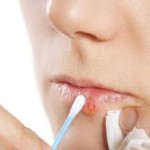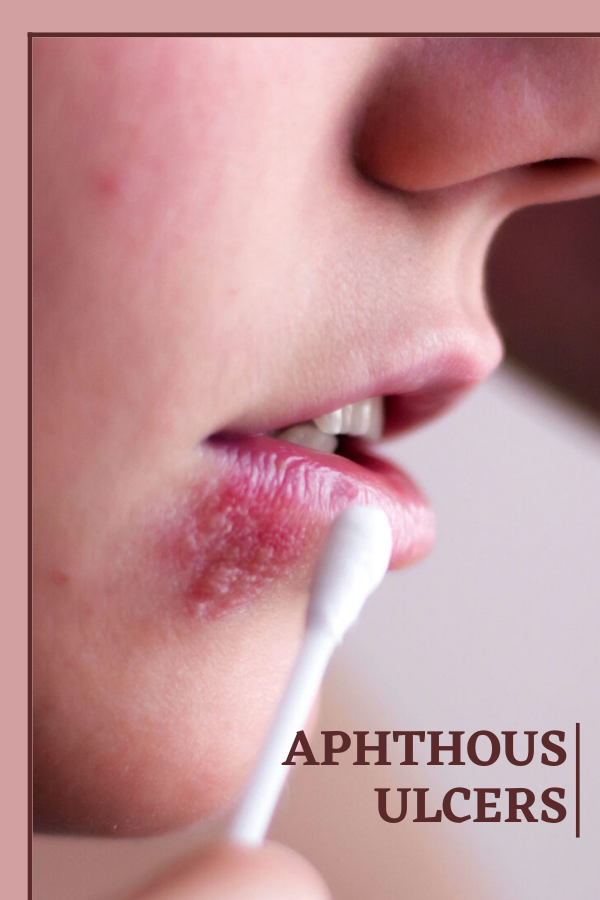 Aphthous Mouth Ulcers are painful and reappear from time to time. They usually go without treatment in 10-14 days. Lozenges and Mouthwashes may soothe the agony, and may hasten the healing of the ulcers.
Aphthous Mouth Ulcers are painful and reappear from time to time. They usually go without treatment in 10-14 days. Lozenges and Mouthwashes may soothe the agony, and may hasten the healing of the ulcers.
OMG! What are these White Patches in My Mouth?
It may begin with a tingle on your inner lip, or maybe with a tad burning sensation on your inner cheek. You may wonder, did you poke yourself with a pointy and sharp end of potato chip again? Or worse, who have you been kissing (oouch)?
Why Do I Get Sores in My Mouth?
Aphthous ulcers also known as canker sores are painful and pop up in the delicate tissues of the mouth and inside the lips, and usually occur due to abrasion that becomes infected, inflamed and sores. The sores are yellow or white with red rings around them and often heal in a week or two. Sometimes they are larger or evolve in clusters and can take around a month to heal. Large ulcers may cause scarring on healing.
Canker sores are the most common types of mouth ulcers!!
Symptoms
The ulcers usually occur on gums inside the cheek, on tongue and inside the lower lip. They are common in people of all ages, including kids and the incidence varies substantially.
Women gets affected of Aphthous mouth ulcers more than men.
Diagnosing canker sores can be grueling, given that they can look like viral infections that cause similar sores like HSV (Herpes Simplex Virus). Nevertheless, the sores are not usually responsive to therapies utilized to treat HSV; hence an appropriate diagnosis may not be done until after viral infections such as HSV has been ruled out.
Types of Canker Ulcers
Minor sores
The most common type of canker sores
- Are usually small
- Oval shaped
- Heal in 1-2 weeks without scarring
Chances are good that if you feel the agony of ulcer in your mouth it will be minor canker type. These sores account for at least 80% of all aphthae, and usually are less than 5-millimeters in diameter (albeit they can be anywhere between 1-10 millimeters). Generally, people develop this very first minor Aphthous sores as a child or teen.
Major Ulcers
The ulcers mostly affect adults
- Are bigger and deeper as opposed to minor ulcers
- Irregular shapes
- May take around 6-weeks to heal and can leave extensive scarring
Major ulcerations that affect adults are identical to minor ulcers, but are bigger than one and half inch (1.3 cm) in diameter and the rarest type.
Herpetiform sores
The sores develop later in life
- Are pinpoint size
- Have irregular edges
- Heal without scarring in 1-2 weeks
- Usually occur in clusters of 10-100 ulcers
While some people will just have 1-2 ulcers in a lifetime, others (at least 1 out of 5) have chronic Aphthous ulcer, a condition called RAU (Recurrent Aphthous Ulcers).
While Canker ulcers are not contagious, another form of mouth ulcers “cold sores” are. Cold sores occur on the outside of the mouth, and are caused by a virus called herpes simplex virus. The cold sores are so contagious that during ancient Roman times a spate of cold sores led Emperor Tiberius to prohibit kissing during public ceremonies.
Causes of Aphthous Mouth ulcers
The verdict is still not out on the exact cause of canker sores, but we do know that are a lot of contributing factors at work.
The sores crop up when the soft tissue called “epithelial tissue” becomes injured, baring the nerve endings that are below the surface. Following are the possible causes of canker sores:
- A minor injury to mouth from hard brushing, acidic or spicy foods, accidental cheek bite, sports mishaps or dental work
- Emotional stress
- A diet deficient in B-12 zinc, iron or folic acid
- Hormonal shifts during menstrual period
- An allergic response to certain germs or bacteria in mouth
- Food sensitivities, especially to coffee, strawberries, cheese, eggs, chocolate, nuts and acidic foods like pineapples
- Due to drugs like drugs to treat osteoporosis, non- steroidal anti-inflammatory medicines and certain cancer treatments
- Common in people with compromised immune systems like from HIV or other skin conditions or systematic viral infections
- Women are more likely to develop canker sores, particularly just before menstruation or pregnancy, thus hormones play a significant role
- Recurrent canker sores also seem to be in certain people’s genes, as about 1/3rd people who suffer from RAU report it runs in their family
Canker sores may pop-up because of the following diseases or conditions
- Inflammatory bowel disease, like ulcerative colitis and Crohn’s disease
- HIV/AIDS that impairs the immune system
- Celiac disease, a serious intestinal condition caused by sensitivity to gluten (a protein found in grains)
- Behcet’s disease, a rare condition that causes swelling throughout the body, including mouth
Since there is no apparent cause of Aphthous mouth ulcers, there are no definite treatments. There are several methods to alleviate the symptoms, and perhaps lower the frequency of ulcers.
Aphthous Ulcer Treatment
Most canker sores are nothing to worry about, and minor sores will heal on their own in around 7-10 days; however it takes Herpetiform or major ulcers a little longer (several weeks to 1 month) to heal. The ulcers usually cause pain, specifically when eating, talking or drinking, and people with major ulcers are at a high risk of becoming undernourished or dehydrated if the pain from major sores is grave enough to make them to avoid beverages and food.
Any sore that does not heal even after 2-3 weeks of showing up, it must be shown to the doctor to rule out the underlying disorders like cancer, systemic disease or bacterial or viral infection. There is no cure for canker sores, but there are treatments targeted at relieving swelling and pain that may speed up healing (no worries). Over-the-counter remedies like liquid antacids, antihistamines and anesthetic gels usually work well to ward off pain when applied directly on the sores. A physician may prescribe a stronger dosage of corticosteroids and topical analgesic to help relieve severe pain.
There is as no secret roads to prevent getting mouths sores, but hey stop – there are certain tricks that may aid in reducing the number of recurrence of sores and their severity.
- Avoid foods that are spicy, acidic and uber-hot
- Practice a good daily oral hygiene
- Avoid products that contain sodium lauryl sulfate ( a common ingredient in mouthwashes and toothpastes)
- Taking mineral and vitamin supplements, especially iron, zinc and vitamin B12 may offer great protection against sores
When to Visit a Doctor/Dentist
- Recurring sores, with new ones occurring before the older ones heal
- Sores that extend to the border of lips
- Unusually larger Aphthous ulcers
- High fever along with Aphthous mouth ulcers
- Persistent sores, lasting 3 weeks or more
- Pain that you cannot relieve with self-care methods
Enjoyed Aphthous Ulcers? Share it with your friends so they too can follow the Superfoodsliving journey.
Share on Pinterest
